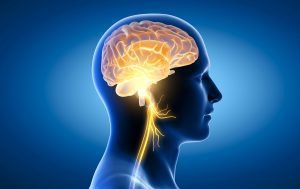Did you know that there are several mineral and vitamin deficiencies that can cause anxiety and panic attacks?
In my case, it was lower than optimal ferritin (iron), vitamin B12, and magnesium. Once I corrected those deficiencies, my anxiety improved drastically and my panic attacks almost completely disappeared.
Here are a few deficiencies that might be responsible for your anxiety or panic attacks:
Iron Deficiency
Iron deficiency is a very common deficiency, especially in women of childbearing age. Some of the symptoms of iron deficiency include:
- Extreme fatigue
- Weakness
- Dizziness
- Lightheadedness
- Shortness of breath
- Weakness
- Pale skin
- Chest pain
- Fast heartbeat
- Pale skin
- Headaches
- Hair loss
- Dry and damaged hair and skin
Do any of those symptoms sound familiar? Many of these are also symptoms of anxiety and panic attacks!
When testing for iron deficiency, make sure to get both iron and ferritin levels checked. Keep in mind that even if your levels are within the standard range, you might still experience some of the symptoms above if your results are on the lower end. Dr. Friedman believes that people with ferritin below 60 ng/mL should be treated for iron deficiency, and according to Dr. Izabella Wentz:
“Normal ferritin levels for women are between 20 and 200 ng/mL. According to some experts, ferritin levels of at least 40 ng/mL are required to stop hair loss, while levels of at least 70 ng/mL are needed for hair regrowth. The optimal ferritin level for thyroid function is between 90-110 ng/mL.”
Vitamin B12 Deficiency
Vitamin B12 deficiency can be very common in vegans and vegetarians who do not supplement with this important vitamin. However, omnivores with low stomach acid, a gut infection such as an H. pylori infection, or bad gut health may also have low levels.
Symptoms of vitamin B12 deficiency include:
- Fatigue
- Dizziness
- Shortness of breath
- Weight loss
- Cognitive decline
- Nausea or poor appetite
- Sore, red, or swollen tongue
- Pale or yellowish skin
- Muscle weakness
- Tingling and numbness in hands or feet
- Irritability
- Depression
- Memory loss
- Constipation
- Balance issues
Again, if you have anxiety the above symptoms might look familiar. As with many other lab ranges, the standard range for vitamin B12 is too wide. Many experts believe that levels below 400 or 500 pg/mL are too low.
I recommend reading Chris Kresser’s article to find out more about this quite common deficiency.
Magnesium Deficiency
If you have a magnesium deficiency, you might experience the following:
- Muscle cramps
- Fatigue
- Osteoporosis
- Muscle weakness
- Anxiety
- High blood pressure
- Irregular heartbeat
- Apathy
Due to mineral-depleted soil, we usually don’t get enough magnesium from our diet anymore, and things like stress, coffee, alcohol, and high-sugar diets can deplete your magnesium levels.
In her book, Dr. Carolyn Dean writes:
“When the adrenals are no longer protected by sufficient magnesium, the fight-or-flight hormones, adrenaline, and noradrenaline, become more easily triggered. When they surge erratically, they cause a rapid pulse, high blood pressure, and heart palpitations. The more magnesium-deficient you are, the more exaggerated is the adrenaline release. Magnesium calms the nervous system and relaxes muscle tension, helping reduce anxiety and panic attacks.”
So, in order to feel calmer, you need to have a good reserve of magnesium and if you can’t get it from your diet, you need to supplement.
My favorite magnesium supplements are magnesium bisglycinate, magnesium citrate, and Dr. Carolyn Dean’s ReMag. However, I’ve had the best results with ReMag probably because it doesn’t require good digestion to be well absorbed. With my stomach acid levels low due to an H. pylori infection, magnesium bisglycinate has been almost useless to me. I do give it to my kids though who have much better digestion.
Magnesium citrate also works well for me, but be careful when trying that one. Start with a very small dose or you might be running to the bathroom! Some people are very sensitive to this form of magnesium. Some can’t even take half a teaspoon without getting a laxative effect.
To find out more about magnesium-deficiency anxiety, read this post by Dr. Carolyn Dean. The post includes a link to her free “Magnesium-Deficiency Anxiety” ebook. I highly recommend reading it.
Potassium Deficiency
Less than 2% of adults in the United States consume the recommended amount of potassium (4). This is probably because Western diets are usually high in processed foods and low in vegetables and fruit.
The symptoms of low potassium include:
- Fatigue
- Breathing difficulties
- Tingling or numbness
- Nausea or vomiting
- Abdominal cramping
- Digestive issues – bloating, constipation, etc.
- Irritability
- Muscle cramps and spasms
- Muscle weakness
- Mood changes and mental fatigue
- Heart palpitations
Calcium Deficiency
This most abundant mineral in the human body isn’t only important for bone health. Calcium is also a “messenger in cell-signaling pathways throughout the body and is necessary for normal cell function, transmission of nerve signals, secretion of hormones, blood coagulation, muscle contraction, and muscle relaxation.” (5)
Some of the symptoms of calcium deficiency include:
- Fatigue
- Numbness and tingling in the extremities
- Chest pain
- Dry skin
- Difficulty swallowing
- Muscle cramps
- Muscle weakness
- Tooth decay
- Brittle nails
- Coarse hair
Get Tested
If you’re experiencing some of the symptoms listed above, it might be a good idea to visit your doctor or a functional/integrative medicine practitioner and get tested. Keep in mind that blood serum tests are not always good indicators of deficiencies. Some vitamins and minerals require special testing that a regular medical doctor might not know about or be able to offer you.
References:
1. https://www.healthline.com/health/malnutrition
2. https://www.healthline.com/nutrition/iron-deficiency-signs-symptoms
3. https://www.mayoclinic.org/diseases-conditions/iron-deficiency-anemia/symptoms-causes/syc-20355034
4. https://academic.oup.com/ajcn/article/96/3/647/4576899
5. https://universityhealthnews.com/daily/nutrition/21-calcium-deficiency-symptoms-that-will-surprise-you/
6. https://chriskresser.com/b12-deficiency-a-silent-epidemic-with-serious-consequences/







